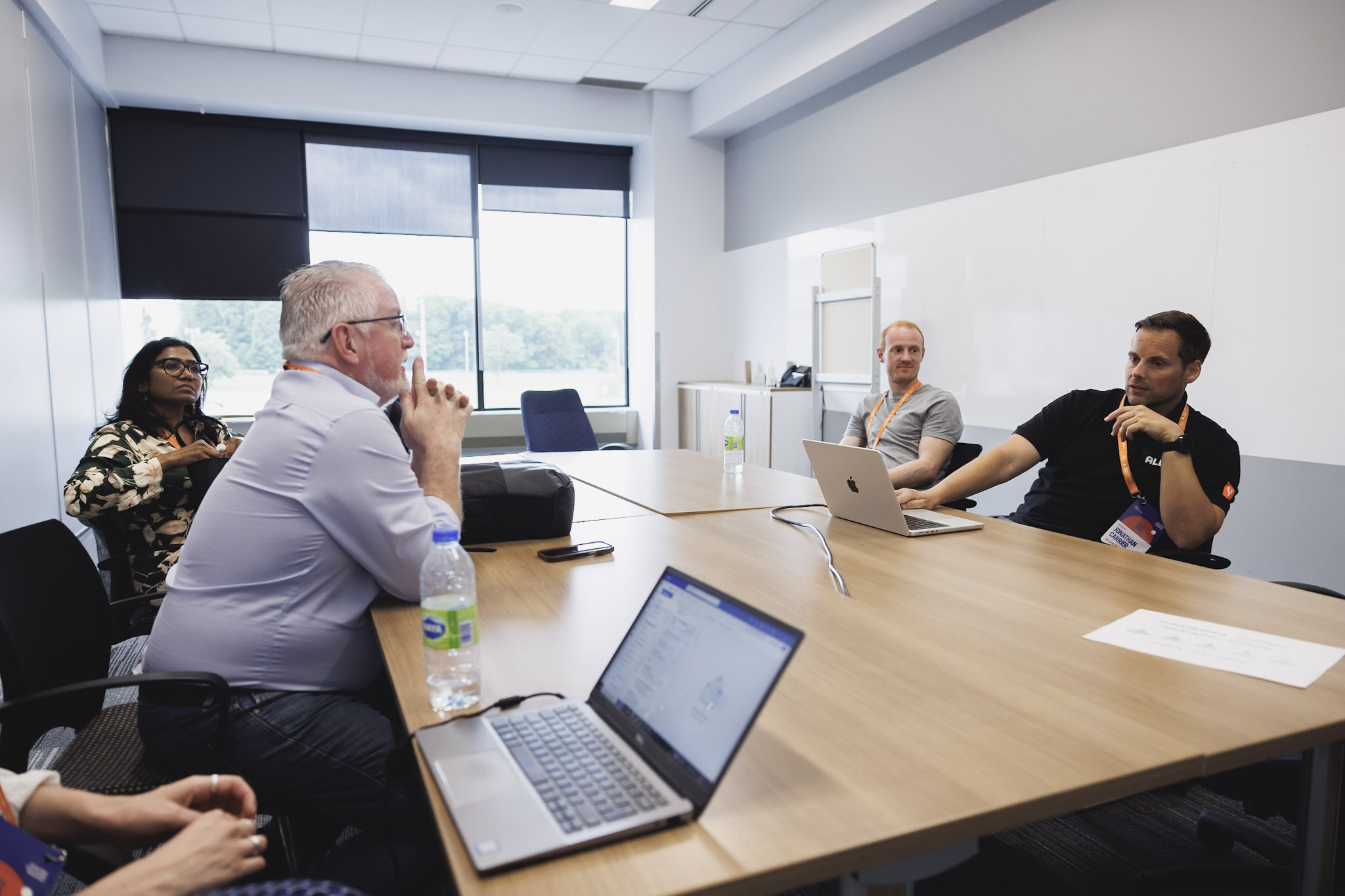The impacts of climate change know no borders – making it a truly global problem. Developing new technologies to decarbonise the energy sector requires an innovation ecosystem that is international and collaborative, where organisations of all shapes and sizes work together and learn from each other to deliver solutions.

ESB is actively involved in fostering that ecosystem, with the ultimate goal of accelerating Ireland’s journey to a net zero future. One way we do this is through our engagement in Free Electrons: the world’s largest energy start-up accelerator, which we co-founded with other global utilities in 2017.
The programme provides a platform for international collaboration on energy innovation, with the aim of delivering pilot projects, deploying products commercially and securing investment opportunities – all while promoting learning and development.
Heading into its ninth edition this year, Free Electrons has helped start-ups join forces with utilities on over 200 pilots, resulting in deals totalling around €110 million. The programme received a record-breaking 847 applications from across the world in 2024, a testament to the strong reputation it has built in the global energy sector.
“We work with energy start-ups developing pioneering solutions for a net zero future, helping them to refine their value propositions,” explains John McKiernan, Head of Innovation Pipeline at ESB and a founding partner of Free Electrons. “For ESB, this is a unique way of gaining insights into cutting-edge technologies from around the globe. As a platform to share knowledge and build new relationships, Free Electrons strengthens our capacity to innovate and explore how these solutions can help bring down carbon emissions here in Ireland.”
Global innovations for a net zero Ireland
The potential for these innovations to accelerate our journey to net zero is clear from the pilots being undertaken by ESB and the Free Electrons start-up alumnae. Contracts signed in 2024 include:
Robot Inspection Pilot: Free Electrons finalist Energy Robotics has developed a Robot-as-a-Service solution, where it deploys autonomous robotic solutions in the chemical and power sector. At ESB, the autonomous robot will be deployed in the heat recovery steam generator building, where it will access critical equipement to collect data.
AI-driven analysis of buildings’ energy efficiency: Leading-edge AI firm QEA Tech provides comprehensive reports on the thermal footprint of buildings and potential measures to support energy saving and sustainability goals. The pilot with ESB will involve scanning a number of ESB Networks buildings using QEA Tech’s aerial thermography. By determining how much energy is potentially being lost and where we can identify retrofitting opportunities to improve energy efficiency.
Optimised EV charging for greater flexibility: US company Flexcharging is conducting a research study aimed at optimising the efficiency and flexibility of electric vehicle (EV) charging. Flexcharging’s innovation is to manage EV charging through the in-built vehicle telematics in the car itself rather than through the charger, enabling greater flexibility for charging strategies. In this pilot, ESB Networks will set charging schedules that align with times when the load is lowest on transformers, with the objective of analysing and optimising EV charging schedules based on performance data, implementing flexible charging strategies, and exploring EVs as a source of flexible demand in Ireland.
Minimising environmental impacts with geospatial data: The pathfinder technology developed by Gilytics uses spatial data and satellite images to identify the optimal corridors and routes for new powerlines. The aim is to minimise the impacts on local communities and nature, by considering avoidance, reduction and mitigation, alongside economic factors, and regulatory and technical constraints.
“The Free Electrons programme is a win-win for all participants,” concludes John McKiernan. “Start-ups benefit from the depth of experience and resources of an established utility like ESB, gaining the opportunity to pilot the viability of new solutions and explore whether they can be implemented at scale. And for us in ESB, these collaborations allow us to harness the potential of emerging energy innovations in support of our net zero ambitions.”

